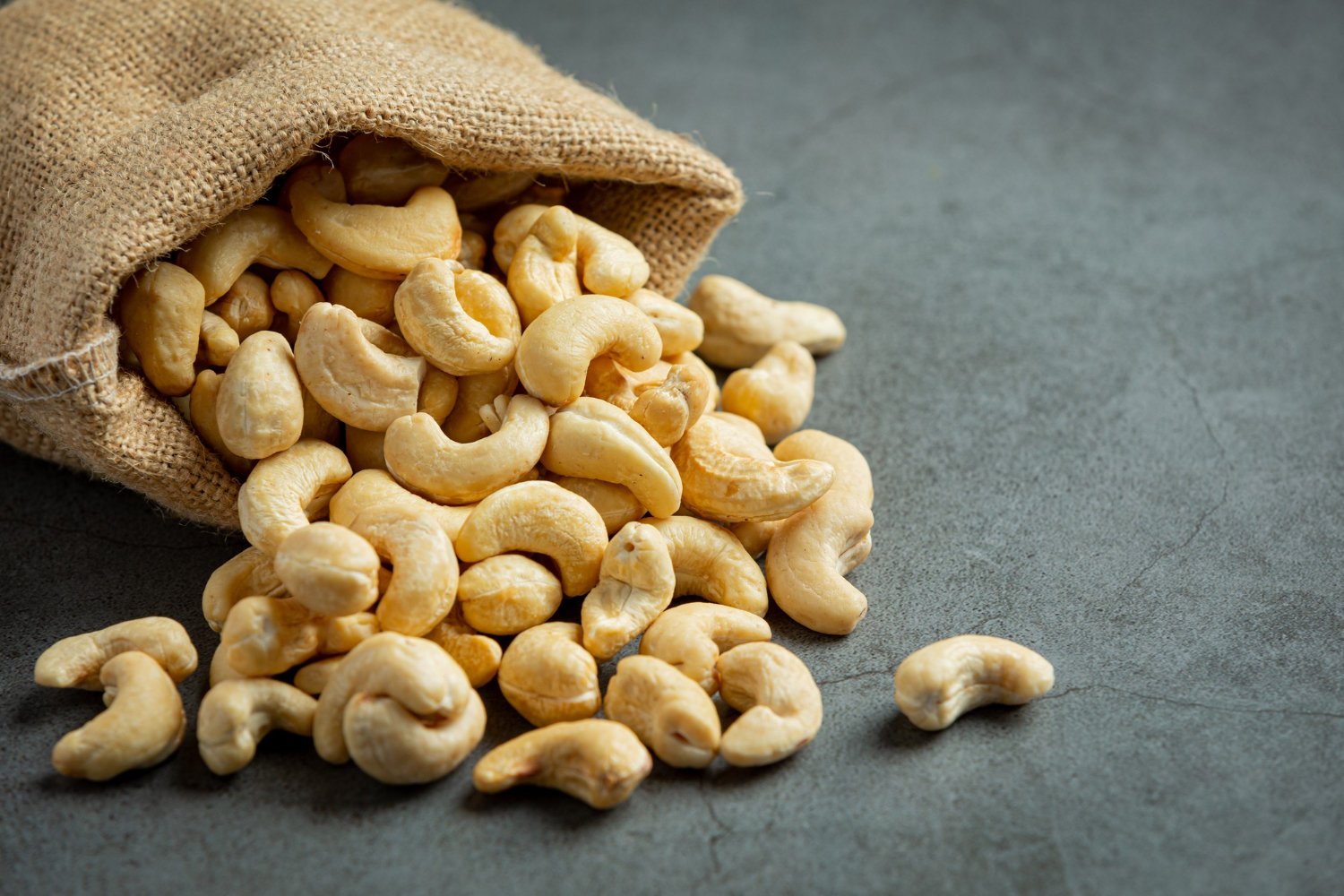Cashews, with their creamy texture and distinctive flavor, has become a beloved ingredient and snack worldwide. Native to Brazil, cashews have captured the hearts of people across the globe, thanks to their versatility and nutritional benefits. In this blog post, we embark on a delightful journey into the world of cashews, exploring their history, cultivation, health benefits, and various culinary uses.
- The Origins and Cultivation of Cashews: The story of cashews begins in Brazil, where they were first discovered by Portuguese explorers in the 16th century. Since then, cashew trees (Anacardium occidentale) have been cultivated in tropical regions around the world. From Brazil, cashews spread to India, East Africa, and Southeast Asia. Today, major cashew-producing countries include India, Vietnam, Nigeria, Brazil, and Tanzania.
- Nutritional Value and Health Benefits: Cashews are not only delicious but also packed with essential nutrients. They are a great source of healthy fats, protein, dietary fiber, vitamins, and minerals. Cashews contain heart-healthy monounsaturated fats and are cholesterol-free. They are also rich in antioxidants, such as vitamin E, which can help protect the body against oxidative stress. Additionally, cashews provide minerals like magnesium, copper, and zinc, which contribute to various bodily functions.
- Culinary Uses of Cashews: Cashews have found their way into a myriad of culinary creations, both savory and sweet. In savory dishes, cashews can be used to make creamy sauces, vegan cheeses, and nut butter. They add a delightful crunch and nutty flavor to stir-fries, salads, and curries. In baking, cashews can be ground into flour or used as a topping for cakes, cookies, and pies. Moreover, they are a popular ingredient in dairy-free ice creams and smoothies, adding richness and creaminess.
- Cashews and Vegan Cuisine: Cashews have become a staple in vegan and plant-based diets, thanks to their ability to mimic the texture and creaminess of dairy products. When soaked and blended, cashews can be transformed into creamy sauces, dressings, and desserts, providing a satisfying alternative to animal-based ingredients. Their versatility makes cashews an essential ingredient in vegan cheese-making and a go-to nut for creating dairy-free delights.
- Cashews in Traditional and Global Cuisine: Cashews have found their way into various traditional and global cuisines. In Indian cuisine, cashews are used in curries, biryanis, and desserts like kaju barfi. In Thai cuisine, they play a crucial role in dishes like cashew chicken and pad Thai. African cuisine incorporates cashews in stews and snacks, while in Brazil, they are used in desserts such as brigadeiros. The adaptability of cashews makes them a star ingredient in fusion cuisine as well.
Conclusion: Cashews, with their rich history, versatile nature, and health benefits, has become a beloved nut worldwide. From their humble origins in Brazil to their prominence in global cuisines, cashews continue to delight our taste buds and nourish our bodies. So, whether you’re enjoying a handful of roasted cashews as a snack or savoring a creamy cashew sauce, take a moment to appreciate the journey and the wonders of this nutty delight.

